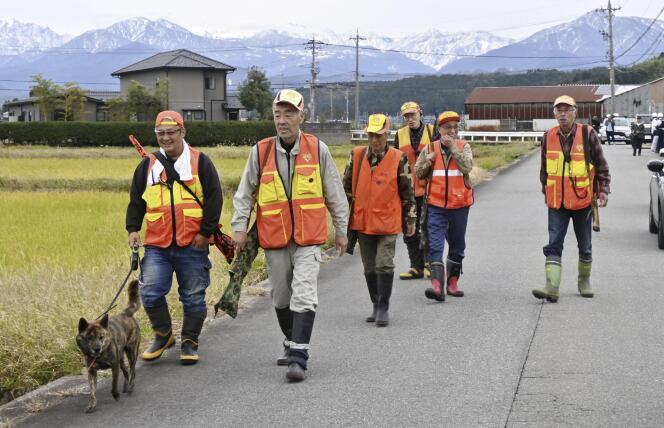


There is an outbreak of bear attacks spreading through Japan, with 212 people assaulted between April and November in 193 attacks by these powerful animals. Six of them died, according to the statement by the Japanese Ministry of the Environment on Friday, December 1. This toll is the highest since the recording of this data began in 2006, and is attributed to demographic and climatic changes in the archipelago.
The scale of the phenomenon has prompted the Ministry to dispatch experts and release funds to help local authorities monitor the bears and implement safety measures. "The important thing is to keep the bears at bay. We're asking people to be careful with their garbage and to put away fruit such as persimmons so as not to attract them," explained Environment Minister Shintaro Ito.
Seventy percent of the attacks took place in the northeast of the country, mainly in the prefectures of Iwate and Akita. In the city of Akita, children go to school wearing bells, which they are supposed to ring to scare off bears. Some schools forbid children to play outdoors. Many residents carry pepper spray. The Akita prefecture offers hunters 5,000 yen (€31) for each bear they shoot. There are also increasing calls for caution in mountain activities.
Japan is home to two species of bear. Brown bears live on the large northern island of Hokkaido, and Asiatic black bears on the main island of Honshu and the western island of Shikoku. After being hunted for a long time, the bears have benefited from protective measures since 1990. They begin hibernation in November or December, lasting until April or May. There are some 15,000 bears throughout Japan, according to official data from 2014, the latest available. Every year, several thousand are caught in traps or are hunted – 2,600 were hunted in April and August. There are regular exercises to raise awareness of what to do if a bear is reported near your home.
To hibernate, bears need to have accumulated sufficient fat by eating Japanese oak acorns (mizunara) and beech nuts. However, this summer has been exceptionally hot and dry across Japan, with "temperatures considerably above seasonal norms," according to the Japan Meteorological Agency. The average for 2023 was 1.76°C above normal, the widest gap ever.
As a result, mizunara and beech trees failed to produce many nuts. Observations of beech trees carried out this autumn by the Tohoku (Northeast) Regional Forestry Board at 145 sites in northeastern prefectures revealed a worrying situation, classified as a "failed harvest" for the first time since 2019.
You have 40% of this article left to read. The rest is for subscribers only.
